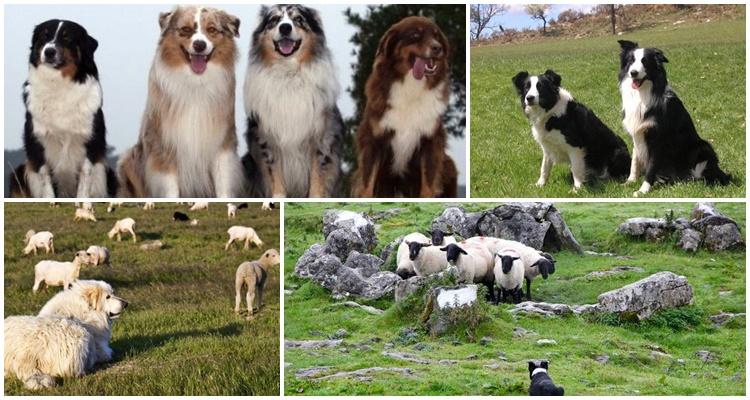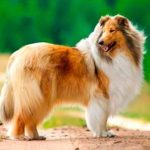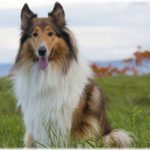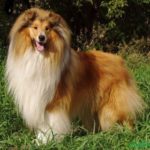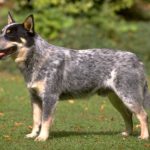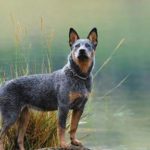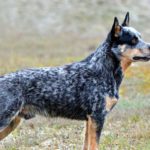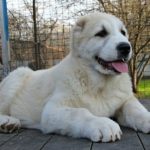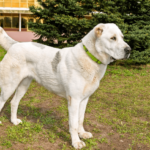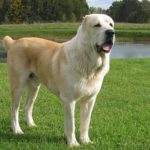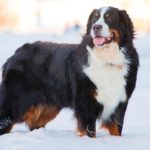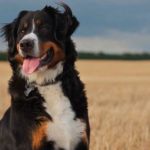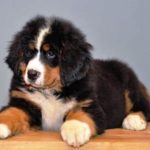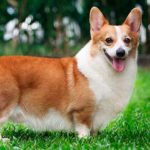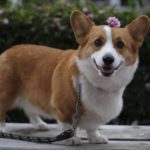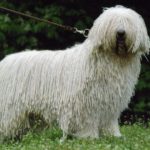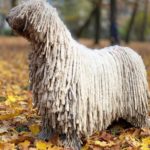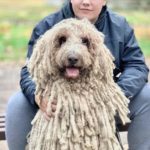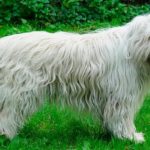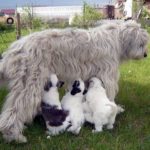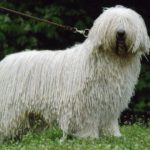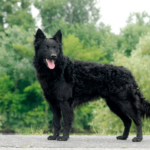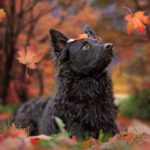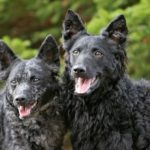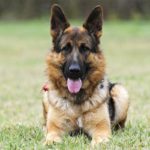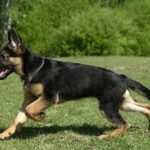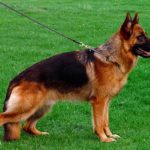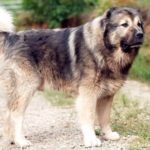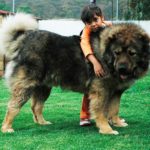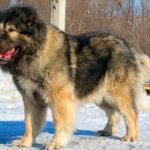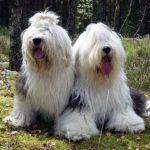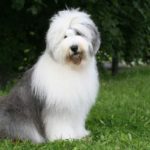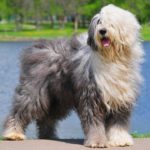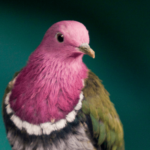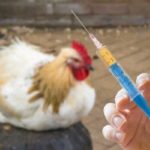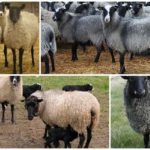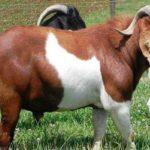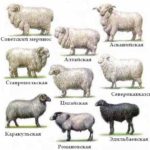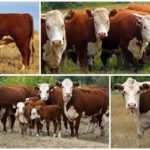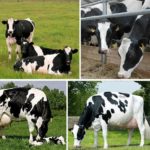Herding dogs have been around since ancient times, when people began raising sheep. Brave pets guarded and guided the herds, protected livestock from attacks by wolves, guarded the owner's property, and even transported small luggage. All breeds of dogs that herd sheep are called shepherds. Today, wonderful animals still participate in herding sheep, becoming devoted companions and guards.
- Benefits of herding dog breeds
- History of appearance
- The most popular breeds
- Scottish Sheepdog (Collie)
- Australian Shepherds - Heeler
- Central Asian Shepherd – Alabai
- Bernese Shepherd - Mountain Dog
- Welsh Corgi
- Komondor - Hungarian representative
- South Russian Shepherd Dog (YURO)
- Mudi - Hungarian Shepherd
- German Shepherd
- Caucasian Shepherd Dog
- Bobtail
- Rules for choosing a puppy
Benefits of herding dog breeds
Shepherd dogs are valued all over the world because they have many advantages:
- beautiful appearance, harmonious physique;
- physical strength, developed muscles;
- ability to cope with high physical activity;
- luxurious wool with a dense undercoat, which helps to survive in high mountains and harsh climatic conditions;
- discipline due to lack of hunting instinct;
- developed guard skills, distrust of strangers, readiness to attack an ill-wisher;
- endless devotion to the owner.
History of appearance
The first dogs herding sheep appeared several thousand years ago in the Asian highlands. The first shepherd dogs were so strong and tough that they easily drove away not only a pack of wolves, but also bears from sheep. When dogs came to Europe, breeders decided that shepherd dogs should not only be brave and strong, but also beautiful, noticeable among grazing sheep.
The peak of selection of herding dogs in European countries occurred in the 20th century. The Germans bred the shepherd dog, which became in demand not as a four-legged shepherd, but as a pet for work in the police and army. Russian breeders are proud of the impressive and rugged Eastern European and Southern Russian Shepherd Dogs.
The most popular breeds
In each country, breeders selected shepherd dogs according to the desired character traits and appearance, and this is how breeds with specific characteristics arose, adapted for living in certain climatic conditions.Below is a list of the most popular sheep guard dogs in the world.
Scottish Sheepdog (Collie)
The English and Scots, with their characteristic aristocracy, decided that a dog for herding sheep should be a real beauty. This is how the collie appeared - a breed with silky, flowing hair and a harmonious physique. The original purpose of the collie was to guard sheep and monitor the safety of the owner's children. But soon the beautiful dogs attracted the attention of aristocrats and became elite pets.
When the Lassie TV series aired from the 1950s to the 1970s, the Scottish Sheepdog became incredibly popular all over the world. Collies still herd sheep in farming areas of England and Scotland today. But more often a dog is adopted as a companion.
Australian Shepherds - Heeler
The Australians bred dogs for herding sheep separately from the Europeans. The ancestor of Australian Shepherds was the wild dog dingo. The Heeler Shepherd Dog is strong, wiry, with developed muscles and a large skeleton. The highlight of the breed is its original color: blue, speckled blue, speckled red.
The four-legged shepherd subtly senses the owner’s mood, understands what to do with the sheep, even without commands, but only by the owner’s facial expressions.
Heelers prefer a pack lifestyle, love to be in the center of attention, and do not show aggression unless necessary and for a good reason.
Central Asian Shepherd – Alabai
Alabais are the most massive, hardy, severe representatives of the group of shepherd dogs. The weight of males reaches 90 kg, females weigh about 70 kg. This ancient native breed is only for an experienced breeder; a beginner cannot cope with the dog’s firm and rebellious character. Due to its large size, the Alabai should not be kept in a city apartment, and due to its severity and willfulness, it should not be kept in a family with small children.
While grazing sheep, an alabai alone rushes at a seasoned wolf. Representatives of the breed are used not only as shepherds, but also as fighting dogs.
Bernese Shepherd - Mountain Dog
The Swiss Shepherd is a dog not only for herding sheep, but also for security and official purposes. Breeders tried to maximize positive character traits. The Sennenhund is a wonderful companion for a large family; it willingly participates in children's activities and is suitable for keeping both in a country house and in a modest city apartment.
Welsh Corgi
Few people know that funny short-legged dogs are shepherds. Their original purpose is to control the movement of the herd. The dogs grabbed the sheep by the legs, urging them on, correcting the direction of movement.Today, the corgi is not a sheep herder, but a decorative dog for indoor keeping.
Komondor - Hungarian representative
The Ancient Hungarian Shepherd looks large and imposing, but a significant percentage of its body weight is made up of long, tightly dreadlocked hair. The original “fur coat” gives the dog a resemblance to sheep, making it almost impossible to see the four-legged shepherd in a moving herd.
Wool accumulates dirt, begins to smell, is difficult to wash, and the slightest scratch on the skin can cause serious inflammation.
South Russian Shepherd Dog (YURO)
A massive, portly dog with voluminous hair, it was originally intended to help herd sheep, but today is used for guarding purposes. Representatives of the breed help border guards guard the borders of our country, attacking the enemy, and show amazing dexterity and swiftness.
The dog's appearance is sweet, cute, and does not match its serious character.It's hard to believe that this is a born guard and not a big lapdog.
Mudi - Hungarian Shepherd
The shepherd dog from Hungary is so nimble that it alone is enough to track a large flock of sheep. Can be used as a hunting dog, helping to track large game.
The irrepressible energy of a moody must regularly find a way out. Daily outdoor training, agility, and jogging help with this. A small shepherd dog feels great in indoor conditions.
German Shepherd
It is deservedly considered the best breed created by German breeders. In fact, this dog is a national treasure of Germany. Representatives of the breed cope well with herding not only sheep, but also cattle. About 100 years ago, the German Shepherd began to be used to assist in military and police tasks.
The German Shepherd is capable of performing a variety of tasks, that is, like a Labrador, it is a universal breed in its skills.
Caucasian Shepherd Dog
Large dogs with a noble appearance are also called Caucasian wolfhounds. The history of the breed lasts more than 2 thousand years. The purpose of the pet is to protect the sheep and engage in combat with wild animals that have encroached on the herd.The character of the representatives of the breed is appropriate: brave, uncompromising, decisive, stern.
From the 18th century to this day, the Caucasian Shepherd Dog has been used for guard duty.
Bobtail
The shepherd dog, bred in England, has long lost its sheep guarding skills and turned into a friend and companion. The Bobtail can be used as a guide for blind people.
Rules for choosing a puppy
Shepherds are one of the most convenient dogs to care for and maintain; they are not capricious, hardy, and smart. But when choosing a puppy, you should take into account some nuances so that there are no problems later:
- If a farmer needs a pet to protect sheep, then you can buy a cheap pet-category puppy (companion). If you want your dog to participate in exhibitions, you will have to pay a considerable amount for a show-category puppy.
- Herding dogs need freedom and regular exercise. You should not buy a shepherd for a homebody or a careerist. A shepherd is not a sofa dog; it needs to be walked twice a day for 2 hours.
- You should choose a puppy from a reputable nursery, and not from your own hands.
- The seller must provide the buyer with a veterinary passport with health and vaccination records, as well as a document confirming pedigree.
- When purchasing, you need to carefully observe the puppies offered. The chosen animal should not be intimidated or aggressive. You can clap your hands above the puppy’s head; if he gets scared, starts barking angrily, or tries to hide, then his mental state is in trouble.
If it is not possible to provide the shepherd dog with regular walking and proper living conditions, then it is better to pay attention to other breeds that are less in need of attention and physical activity.

